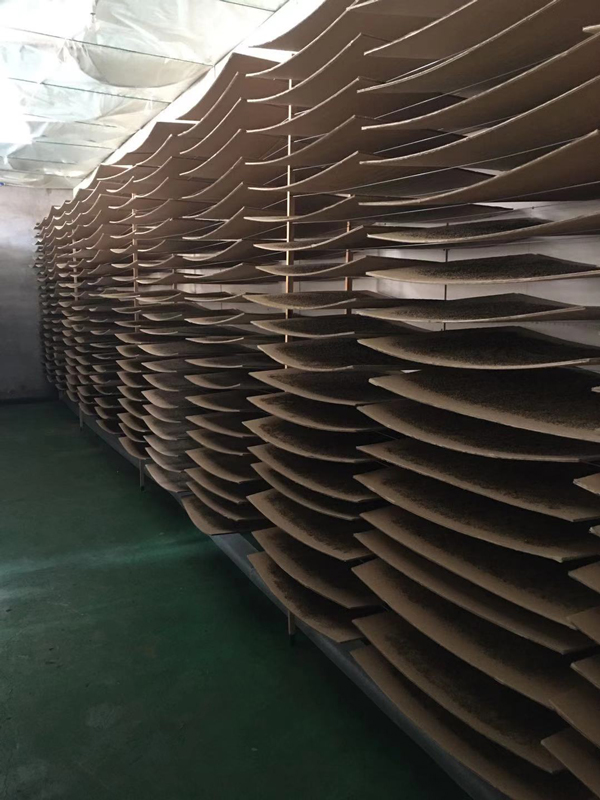Dec . 04, 2024 08:22 Back to list
Active Apricot Pollen from China for Effective Fruit Pollination Solutions
The Importance of Active Apricot Pollen for Fruit Pollination in China
In recent years, the agricultural sector in China has been focusing on increasing fruit production to meet the growing demand from both domestic and international markets. Among the various fruits cultivated, apricots (Prunus armeniaca) hold a significant place, not just for their delicious taste and nutritional value, but also for the economic benefits they offer to farmers. A critical factor in ensuring the successful growth of apricots is effective pollination, and active apricot pollen has emerged as a vital tool in this process.
Pollination is an essential step in fruit development, as it leads to fertilization and the subsequent formation of fruits. For apricots, proper pollination is not only a requirement for fruit set but also impacts the quality and yield of the fruit. In China, the apricot is often dependent on cross-pollination to ensure that a wide range of genetic diversity contributes to the strength and viability of the crop. This is where the significance of active apricot pollen comes into play.
Active apricot pollen refers to the pollen grains collected from healthy apricot trees during their flowering season. These grains possess the necessary properties to fertilize the ovules in the flowers, leading to the production of fruit. Given the challenge of pollination in certain regions—especially areas with fluctuating weather conditions and a declining bee population—farmers have begun to explore the use of active apricot pollen as a supplement to natural pollination methods.
One of the key benefits of utilizing active apricot pollen is its ability to enhance the overall pollination process. By applying this pollen during the flowering period, farmers can ensure that a sufficient quantity of pollen reaches the female parts of the flowers, thereby increasing the chances of successful fertilization. Studies have shown that the application of active pollen can lead to improved fruit set, with higher yields of high-quality apricots.
china active apricot pollen for fruit pollination

Additionally, the use of active apricot pollen can help mitigate the effects of environmental stressors on pollination success. In regions where natural pollinators like bees are in decline due to habitat loss and pesticide use, utilizing active pollen can be a strategic alternative. Farmers can schedule the application of this pollen to coincide with the flowering period of their apricot trees, ensuring that conditions are optimal for pollination.
Furthermore, active pollen can contribute to the advancement of apricot cultivation techniques. Farmers can use it in controlled environments, such as greenhouses, where they can precisely manage the flowering and fruit-setting process. This strategic approach allows for earlier harvests, leading to the potential for higher market prices and improved profitability.
Innovations in the collection and preservation of active apricot pollen have also made its use more widespread. Modern techniques enable the efficient collection of pollen at peak flowering times, ensuring the viability and potency of the pollen grains. Moreover, advancements in storage methods allow farmers to preserve the pollen for extended periods, making it accessible even during non-flowering seasons.
Despite the advantages, the application of active apricot pollen is not without challenges. Farmers must be educated about the proper techniques for applying this pollen to maximize its effectiveness. Additionally, there is a need for ongoing research into the optimal timing and conditions for application, as environmental factors can significantly influence pollination success.
In conclusion, active apricot pollen represents a promising avenue for enhancing fruit pollination practices in China. As the country seeks to bolster its apricot production to meet consumer demands, the strategic use of this pollen could pave the way for improved yields and quality. By addressing the challenges associated with traditional pollination methods and leveraging modern agricultural techniques, Chinese farmers can ensure a sustainable and prosperous future for apricot cultivation. The continued exploration and application of active apricot pollen will likely play a crucial role in the future of fruit farming in China, ultimately benefitting both producers and consumers alike.
-
Pollen Peach Tree for Pure Pollination and High-Quality Peach Pollen
NewsJul.30,2025
-
Premium Cherry Pollen for Pure Pollination & Different Types
NewsJul.30,2025
-
Artificial Pollination Solutions for Various Plant Pollen Types
NewsJul.29,2025
-
Artificial Pollination Solutions for All Plant Pollen Types
NewsJul.29,2025
-
Premium Plant Pollen for Pure Pollination & Pollen Block Solutions
NewsJul.29,2025
-
Artificial Pollination Solutions for Efficient Crop Yields
NewsJul.28,2025